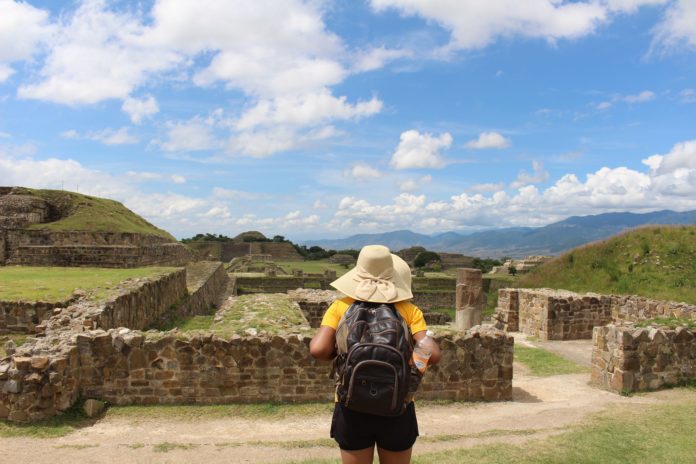CECILIE THOGERSON; Guest Writer; thogerch@plu.edu
*Editor’s Note: The name in this story has been changed to respect the source’s anonymity.
A senior of Pacific Lutheran University was in a meeting a couple of months ago when she received a text message. It said that a young man from the Seattle area had been arrested, allegedly because he was living in the United States undocumented.
Sofia Gonzales* said she could not believe what she was reading.
“I was in shock,” Gonzales said.
The man who had been detained, Daniel Ramirez Medina, was a so-called DREAMer – a recipient of Deferred Action for Childhood Arrivals (DACA) which permitted him to live and work in the U.S. temporarily without having citizenship. This was the exact same immigration policy that also permitted Gonzales to live in the U.S. without being an American citizen.
However, much changed with the election of the Trump administration. The president had frequently said that he wanted to take a tough stance on immigration, but had yet to make it clear how it would affect people with a DACA permit. This was the first time a DREAMer had been arrested under the new administration.
After she received the message, Gonzalez decided to talk to one of her professors who had experience in legal issues. Gonzales had only told one other professor in her department that she was a DACA recipient. Gonzales said that the professor told her that she would have to fight and not give up easily.
“I felt blessed and a little overwhelmed with all the information,” Gonzales said.
Later that day she went home to her parents and told them what had happened.Gonzales said that she felt that her life had suddenly been turned upside down. She had no idea what the arrest of a fellow DACA recipient would mean for her.
Gonzales was born in Mexico and came to the U.S. with her parents and siblings when she was four years old. In June, 2012, the option to apply for a temporary relief to work and study in the U.S. became available to Gonzales when the DACA policy was introduced by the Obama administration. DACA allows certain individuals to receive a renewable two-year period of deferred action from deportation.
However, the process of receiving a DACA permit proved far from simple. To be allowed this permit you must have entered the U.S. before the age of 16 and before June 15, 2007.
Among other requirements, you also must be in school or be a high school graduate. It is furthermore required that you are under the age of 31 as of June 15, 2012.
Despite of the fact that Gonzales fulfilled all the requirements, she was not able to apply for a DACA permit until December 2013 due to the financial strain of the process. It costs $465 to apply.
Applying for a DACA permit is a complicated process. Many people choose to seek professional help as you are only allowed to apply once. However, Gonzales decided to do it on her own.
Having to deal with such an important legal matter all by herself became a reality for Gonzales. Like thousands of other teenagers, she could not ask her parents for help due to a language barrier.
“I was scared,” Gonzales said, “I didn’t want to mess anything up.”
Gonzales succeeded with her application. In 2014, she received her DACA permit. Every two years she must re-apply to have her permit renewed. As of December 2016, the cost to renew is $495.
Gonzales said that though she understood that having received DACA was only a temporary solution, she still thought that once she had the permit she could not be touched by law enforcement. All this changed after the presidential election and Medina’s arrest.
“A lot of emotions just went through me,” Gonzales said, “Even though [the arrest of Medina] did not affect me personally, it was so close to home. It happened just here in Pierce County. It was kind of surreal.”
Gonzales said that the uncertainty that followed was a feeling she had known since she was old enough to understand what it meant to live in the U.S. without citizenship.
Gonzales decided to turn to the support system she has developed at PLU including the Diversity Center, which she herself is involved with, and the Task Force at PLU for undocumented students.
The Task Force includes different students and members of faculty. One of these members is Assistant Professor of Hispanic Studies Emily Davidson. Davidson said that she works with and for undocumented students in different ways. Hearing the experiences of students like Gonzales who face difficult times and uncertainty was one of the reasons that she became involved with the work.
However, Davidson said that PLU stresses that it does not want to “save” undocumented students as they do not need to be saved.
“Undocumented students are some of the bravest and strongest leaders in our times,” Davidson said, “Without them, we would not be doing all of this activism.”
Gonzales is just one of the approximately 750,000 people who are currently living in the U.S. on a DACA permit. For the moment, Gonzales does not know what the future will bring and if she will be able to renew her DACA permit. She said that she is just certain of one thing.
“For now, I am definitely staying here,” Gonzales said. “Washington is my home. If something happens to me or my family, at that point I will reevaluate what is next.”























